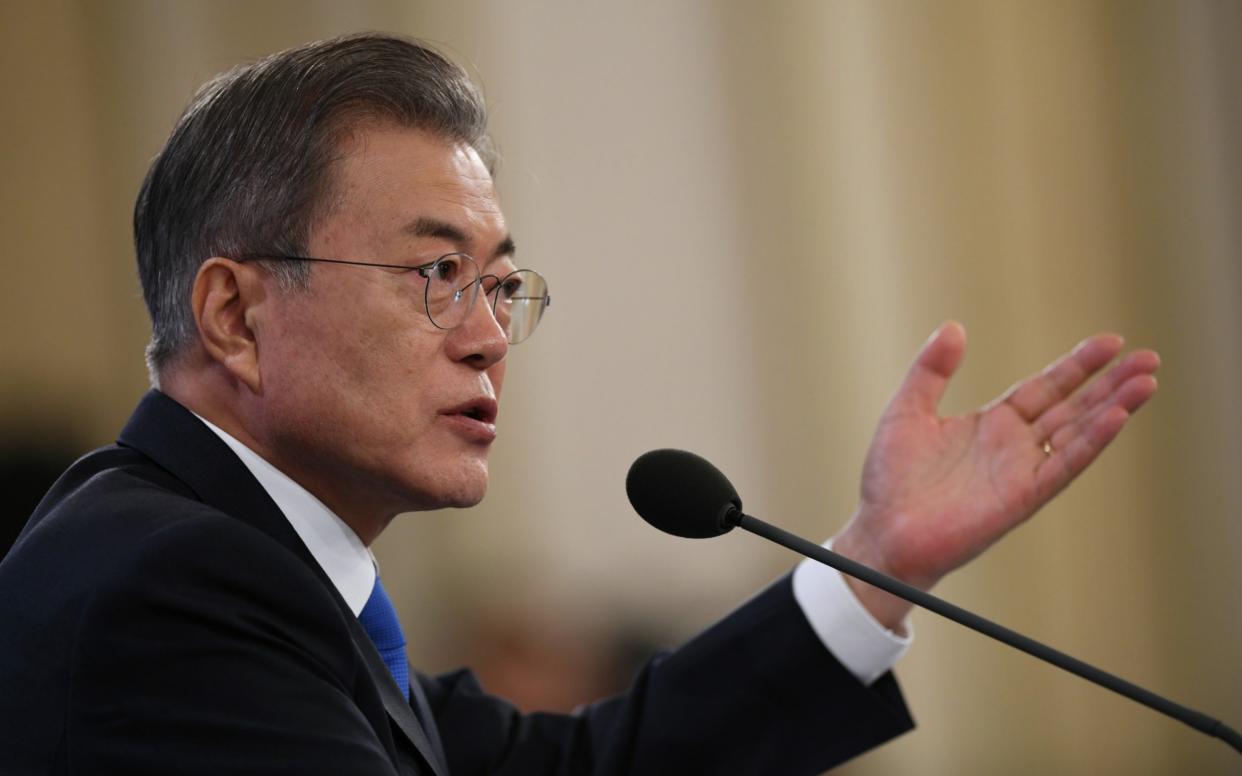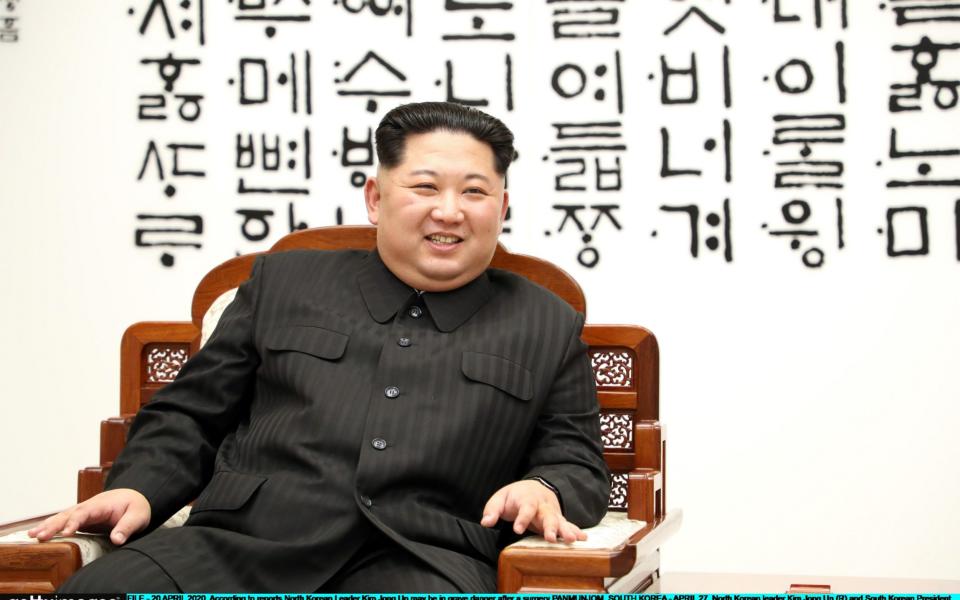South Korean attempts to engage with North Korea in doubt after hefty defeats for ruling party

South Korea's attempts to reach out to Pyongyang have been thrown into doubt after the ruling party suffered resounding defeats in two key mayoral elections on Wednesday.
Voters punished the government of Moon Jae-in for a series of political mis-steps including a slow roll-out of coronavirus vaccines, failed economic policies, and scandals over property and sexual harassment.
The Democratic party lost the bellwether by-elections for the mayoralties of Seoul and Busan, the country's two largest cities, as well as as 13 of 19 further local contests.
The result leaves Mr Moon, president since May 2017, as a political lame duck with around a year left in his single five-year term left to run.
Mr Moon said on Thursday that he accepts the results as a “reprimand” from the electorate, adding that he will continue with his duties with a “humble demeanour and a heavy sense of responsibility”.
There were high hopes in the early months of Mr Moon’s administration that he would achieve a breakthrough in relations with North Korea, but that initiative has also ground to a halt.
Repeated offers of economic assistance, aid and medical supplies have been ignored by Pyongyang, which has instead responded to the mildest of provocations with violence.

The Inter-Korean Liaison Office, built with South Korean funds in the North Korean city of Kaesong as a symbol of economic cooperation, was unceremoniously destroyed in June 2020 after Pyongyang complained that defectors were sending propaganda leaflets into the North by balloon.
The conservative People Power Party has emerged as the big winner from the by-elections, its candidate, Oh Se-hoon, winning more than 57 percent of the vote in Seoul, and the party will hope to build on that momentum in the run-up to next year’s presidential elections.
In South Korea progressives tend to favour rapprochement with Pyongyang and closer ties with Beijing, and analysts said on Wednesday that a future conservative administration may jettison efforts to draw the hermit kingdom into more cordial relations.
The defeat was a stunning turn-around from Mr Moon’s electoral victory in 2017, when he was swept into the Blue House by voters outraged at the corruption and cronyism that had been uncovered in the administration of his immediate predecessor, Park Geun-hye.
Mrs Park is presently serving a 25-year prison term for a raft of political crimes while in office.
Mr Moon even fared well in a general election a year ago, but his political fortunes have since suffered a steep decline.
A new justice minister was forced to resign just days after being named over a scandal involving falsified university admissions for his daughter, bribery and questionable investments.
Another politician close to Mr Moon has been implicated in the embezzlement of funds donated to support women forced to work in Japanese military brothels during World War Two.
Even the by-elections in Seoul and Busan were the result of the previous Democratic Party mayors leaving office after being accused of sexual assault against female members of their staff. Park Won-soon, the mayor of Seoul, committed suicide in July last year just as prosecutors were preparing to launch an investigation into his behaviour.
The governments’ repeated efforts to bring land and housing prices in Seoul under control have failed, with rents soaring at a time when many people were already experiencing economic difficulties because of the coronavirus pandemic.
It did not help the ruling party when it was reported that at least one of its members had raised prices in his rental properties just days before legislation designed to protect tenants went into effect.
Similarly, there has been widespread outrage after it was learned that dozens of officials at LH, the state-run housing developer, bought land cheaply in a district that the government later announced was to be developed into a dormitory city for Seoul. The price of land in the area immediately soared.
The government was initially praised for its handling of the pandemic and for keeping infections and deaths in the earliest stages relatively low, but is now the target of withering criticism for failing to obtain adequate supplies of vaccines.

